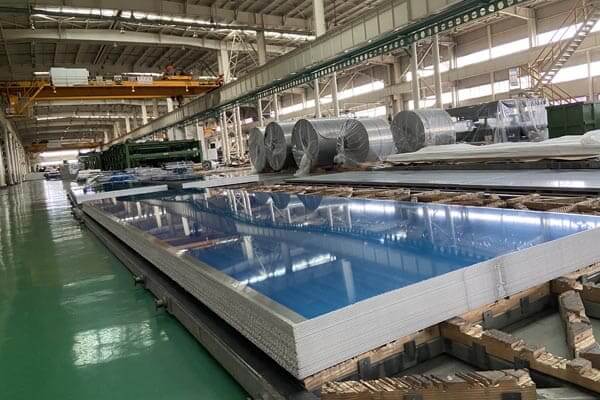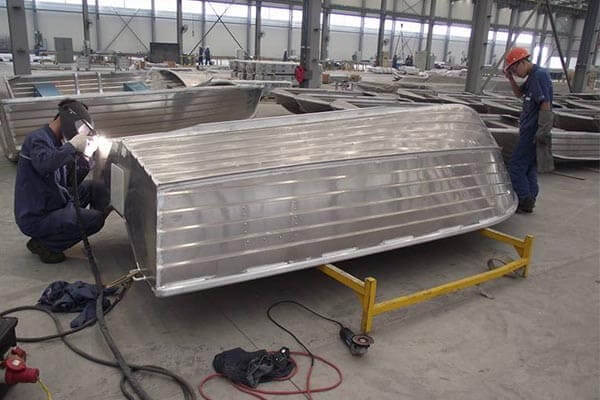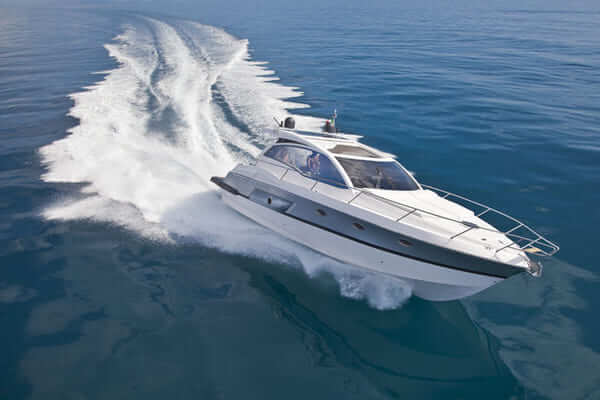Aluminum plates have been used in the shipping industry for a long time, but they have been widely used in ships in modern times. Aluminum plates have low density, high toughness, high stiffness and corrosion resistance.
Aluminum plates have been used in the shipping industry for a long time, but they have been widely used in ships in modern times. Aluminum plates have low density, high toughness, high stiffness and corrosion resistance. Ship designers believe that aluminum plates are more suitable for the shipbuilding industry than thick steel plates. Advantages of the application of aluminum plates on ships: The production cost of aluminum is low, so it is more reasonable to use aluminum profiles to manufacture ships.
Plate Thickness: The thickness of ship aluminum plate usually ranges from a few millimeters to tens of millimeters, depending on the size and type of hull. Common thicknesses include 5mm, 8mm, 10mm, etc.

6082 shipbuilding aluminum sheet
Alloys: Aluminum plates for ships usually use high-strength, corrosion-resistant aluminum alloys, such as 5 series (such as 5083, 5086) and 6 series (such as 6061, 6082 aluminum sheet) aluminum alloys. These alloys offer superior strength and corrosion resistance.
Width and Length: The width and length of aluminum panels will vary depending on the design and manufacturing requirements of the hull. Standard widths are usually between 1 meter and 2.5 meters, while lengths can be customized as required.
Surface treatment: In order to improve corrosion resistance, some marine aluminum plates may undergo surface treatment, such as anodizing, coating, etc. This helps increase the weather resistance of aluminum panels and slows down the corrosion process.
Certification and standards: Aluminum plates for ships usually need to comply with specific certification standards, such as the regulations of the International Maritime Organization (IMO), certification by classification societies (such as DNV, LR, ABS, etc.).
From the perspective of ship designers, the advantages of aluminum plates in ships are that ships made of aluminum alloy profiles can achieve better efficiency and longer service life. This advantage of aluminum alloy profiles makes it more suitable for use in ships. With the rapid development of aluminum plate manufacturers, the shipping industry has provided a wide range of applications for aluminum profiles.
Aluminum sheets have many applications on ships, mainly due to their excellent performance and characteristics. The following are some common applications of aluminum plates in the marine field:

Aluminum plates on ships
Hull structure: Aluminum plates are often used in the construction of hull structures, especially on light ships and high-speed craft. Aluminum has a lower density and superior strength, allowing the hull to be lightweight but still have sufficient structural strength.
Hull Shell: Aluminum sheets can be used to construct the hull shell, providing good corrosion resistance. This is very important for ships in marine environments, as the salt and humidity in seawater can have a corrosive effect on metal materials.
Deck and Superstructure: Lightweight yet strong aluminum panels are also commonly used on ships’ decks and superstructures to reduce overall weight and improve vessel stability.
Marine equipment and components: Aluminum alloy can be cast or processed to form and used to manufacture various marine equipment and components, such as marine ladders, railings, masts, ladders, etc.
Cargo holds and storage equipment: In some specific types of ships, aluminum sheets are also used to manufacture cargo holds and storage equipment. Its lightweight nature has a positive effect on improving freight efficiency and reducing fuel consumption.

Shipbuilding
Marine bulkheads: Aluminum alloy plates can also be used to build bulkhead structures on ships to ensure that water does not quickly enter the entire hull in the event of an accident.
More detials about marine aluminum:
Huawei Aluminum aluminum discs are widely exported to Ghana, Guatemala, Burkina Faso, Algeria, Togo, Kenya, Nigeria, South Africa, Morocco and other African countries; the United Arab Emirates, Yemen, Qatar, Kuwait, Iran, Jordan, Saudi Arabia and other Middle East nation.
The properties of 3003 aluminum circle make it ideal for use in multiple markets including the cookware, automotive and lighting industries
Discover the perfect blend of strength and aesthetics with black aluminum checker plate. Ideal for flooring, ramps, and decorative features, this lightweight material ensures safety and style in any setting.
Embossed aluminum sheet is an aluminum product that is rolled on the basis of pure aluminum plate or aluminum alloy plate to form various patterns on the surface.
Aluminum circle for cookware bottoms are normally called "aluminum disc" or "aluminum disk." these are circular portions of aluminum which might be used because the base or backside of various forms of cookware, which includes pots, pans, and strain cookers.
3mm aluminum sheet refers to an aluminum sheet with a thickness of 3mm, and 3mm is a common thickness of aluminum sheet
No.52, Dongming Road, Zhengzhou, Henan, China
Henan Huawei Aluminum Co., Ltd, One Of The Biggest Aluminum Supplier In China Henan,We Are Established In 2001,And We Have rich experience in import and export and high quality aluminum products
Mon – Sat, 8AM – 5PM
Sunday: Closed
© Copyright © 2023 Henan Huawei Aluminium Co., Ltd
Latest Comments
Dear Sir, Please offer your best FOB Prices specs are as under ALUMINIUM STRIP (AL=99.50% MIN) SIZE:450 X32 X6 MM. DIN EN 570 EN-AW 1050 A, QUANTITY=3400KG
Hello, Would you be so kind to offer item as follows: Coil 0,6х1250 (1000)mm EN AW-3105 5tons
Hello, Can you offer me Aluminium plates? Actally I need: 110mm x 1700mm x 1700mm 5083 H111 - 21 pcs Next year planed is 177 pcs
Świetny artykuł. Byłem zachwycony, że wyszukałem ten artykuł. Wielu osobom wydaje się, że mają rzetelną wiedzę na ten temat, ale często tak nie jest. Stąd też moje miłe zaskoczenie. Jestem pod wrażeniem. Zdecydowanie będę rekomendował to miejsce i częściej wpadał, aby zobaczyć nowe rzeczy.
requirement of aluminium strip